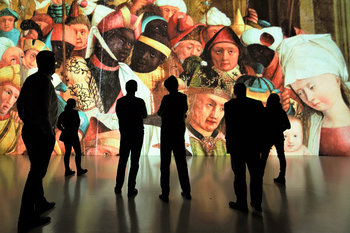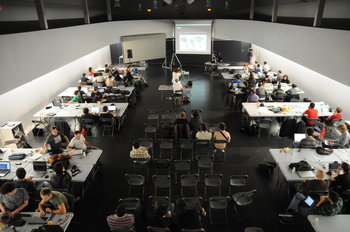Know-How
Know-how such as a salesperson who knows how to influence a particular government agency because they know "how they think." In many cases, organizations feel that employees are interchangeable parts who can perform the same work after a process of knowledge transfer. This often doesn't go well suggesting that know-how is difficult to fully identify and communicate.Processes & Methods
As with know-how, processes and methods that span many people can be difficult to fully document. This often comes up when an organization tries to formalize, systematize or automate an existing process. It is common for these efforts to fail due to an inability to fully capture current processes and methods. For example, if 50 people participate in a process, they are all likely to describe it is conflicting ways.Dispersed Knowledge
Dispersed knowledge is information that is held by many individuals such that none of them see the entire picture. For example, the twelve people who could collectively describe how a government department works.Unstated Assumptions
An unstated assumption is information that is not documented or communicated because it is considered obvious to the individual in possession of the information. For example, an architect who fails to document the logic behind a critical design decision because they incorrectly feel the reason is self-evident to all.Situated Knowledge
Situated knowledge is information that occurs in a time and place such that it is highly specific. This is often sticky because few people are in possession of the information. If they happen to be bad at explaining it, the information may be irretrievable. For example, the only independent witness to a traffic accident.Disputes
Disputes between two or more people where the only sources of information have a strong motivation to color events in a way that supports their side of the dispute.Biases
Information that exists but is communicated inaccurately due to a bias. For example, a witness to an event who is heavily biased in some way such that an ideology, opinion or grudge shapes their description of the event.Culture
Information embedded in a culture such as a culturally important word that is considered impossible to translate into other languages. For example, the Japanese word wabi-sabi is difficult to understand without actually experiencing it within the culture.Abilities
Abilities such as playing a musical instrument or speaking a language can take up to a decade to fully transfer person to person.Talent
Talent may be partially based on information but is often impossible to transfer. For example, a student of an unusually talented violinist won't necessarily become unusually talented themselves.Intuition
Information that is somehow stored and used by subconscious processes of the mind. For example, a business person who can somehow identify the one unusually valuable idea from hundreds of business plans without being able to explain this process in words or pictures.| Overview: Sticky Information | ||
Type | ||
Definition | Information that is difficult to transfer. | |
Related Concepts | ||
























